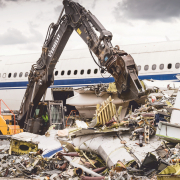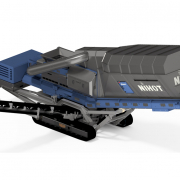Stainless Steel & Special Alloys Committee: Stainless Steel Sector Feels Full Force of “perfect Storm”
This year’s extraordinary developments on the LME had added to an already imposing list of challenges facing the stainless steel sector, including the Ukraine conflict and associated sanctions on Russian nickel exports, higher energy prices and their impact on production costs, rising inflation, lowered economic growth projections, major supply chain disruption and labour shortages. This confluence of events could be described as “a perfect storm”, said Rosie Hill of UK-based Ireland Alloys in her market report to the May 24 meeting of the BIR Stainless Steel & Special Alloys Committee.
She told delegates in Barcelona that suspension of LME nickel trading between March 8 and March 16 this year “caused a loss of confidence in the LME’s ability to provide transparency and liquidity – this at a time of rising geopolitical risks”. Traders had been left “understandably upset” by the inability to price metal during this period.
Robin Martin, the LME’s Head of Market Development, explained that the suspension had followed a price spike in Asia which was regarded by the LME as “disorderly market trading” and “disconnected from any observed fundamentals”. He acknowledged that the “controversial” decision had provoked “huge frustration”, adding that the LME was “under no illusion that we have a lot of work to do to rebuild trust in the market”.
LME nickel volumes were down 15-20% on the corresponding period last year, thus indicating that users were “nervous of re-committing to the market”, he said. As part of the process of rebuilding confidence, reviews into these events were being conducted internally as well as by regulators and independent reviewers. Measures already introduced included the indefinite implementation of limits on price movements, initially pegged at 15%. Mr Martin called on delegates to work with the LME to make the market “more transparent and more resilient”.
During a discussion also involving the BIR Stainless Steel & Special Alloys Committee’s Chairman Joost Van Kleef of Netherlands-based Oryx Stainless and Omar Al Sharif of Sharif Metals in the UAE, Uwe Dierkes of Siegfried Jacob Metallwerke GmbH & Co KG in Germany underlined the impact of the suspension in trading, noting that many companies had been forced to pay a “huge” amount in margin calls.
Also as part of her stainless steel market summary, Ms Hill said that safeguards and anti-dumping measures had failed to prevent duty-free Asian product imports from filling the European market at lower prices, prompting mills to seek a reduction in what they paid for their scrap. “The seasonal slowdown will put stainless pricing under further pressure,” she added. In Asia itself, scrap demand in China had been slow, partly as a result of COVID-related lockdowns, while many mills in India were suffering from weak order books.
On a more positive note, demand for superalloys had been improving in the aerospace sector while the industrial gas turbine market remained healthy.
Source: BIR (Brussels, 2 June, 2022)








